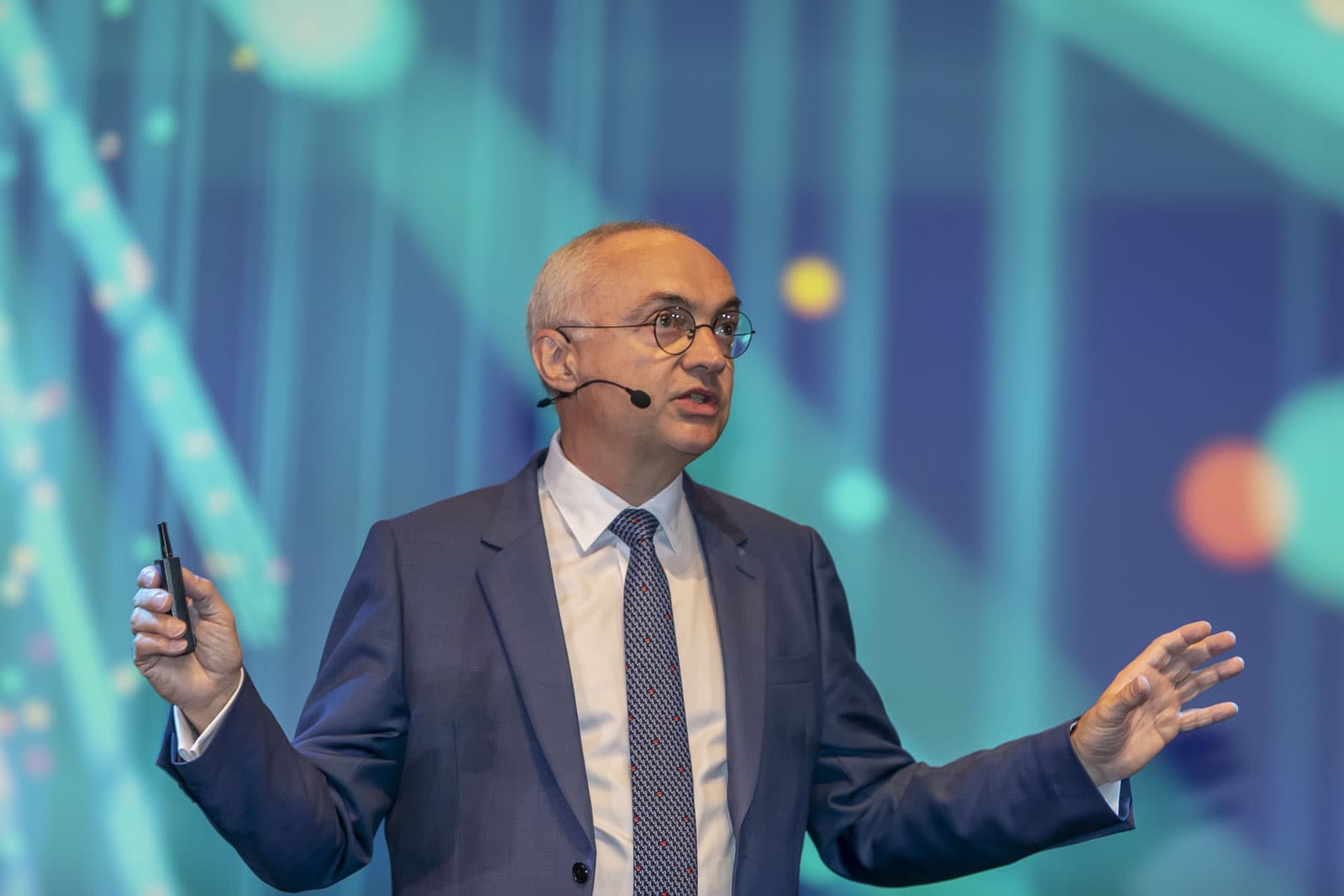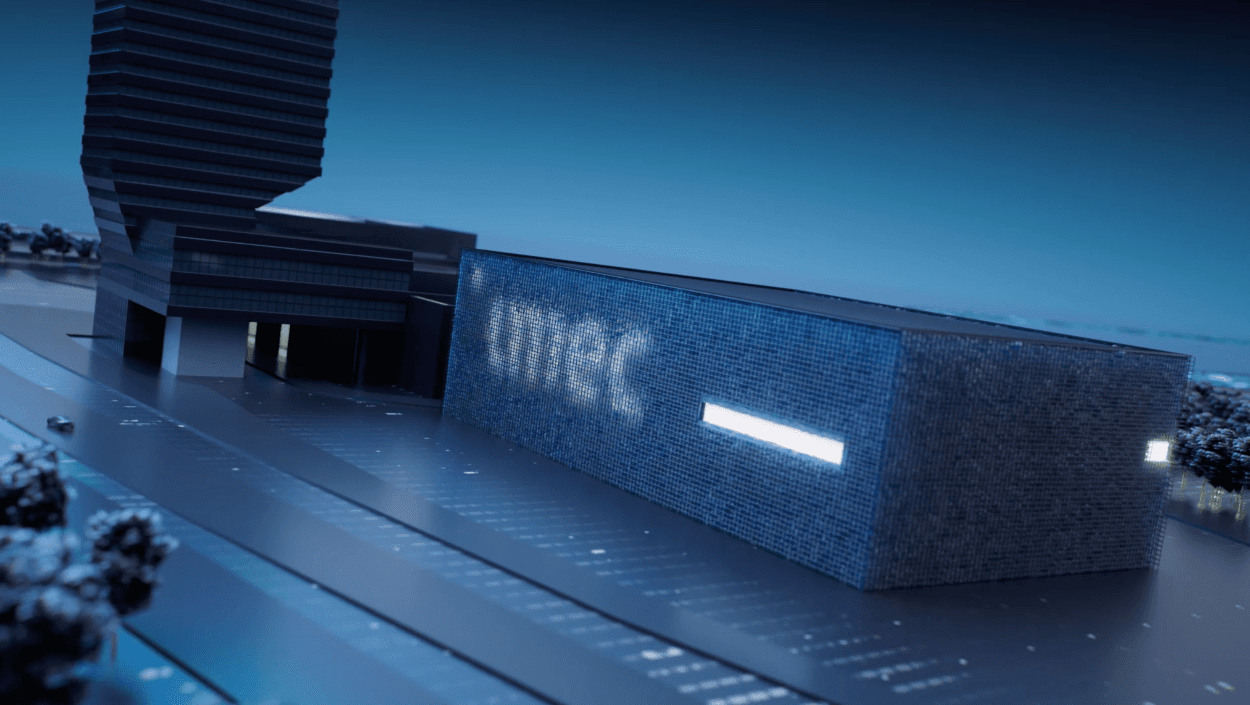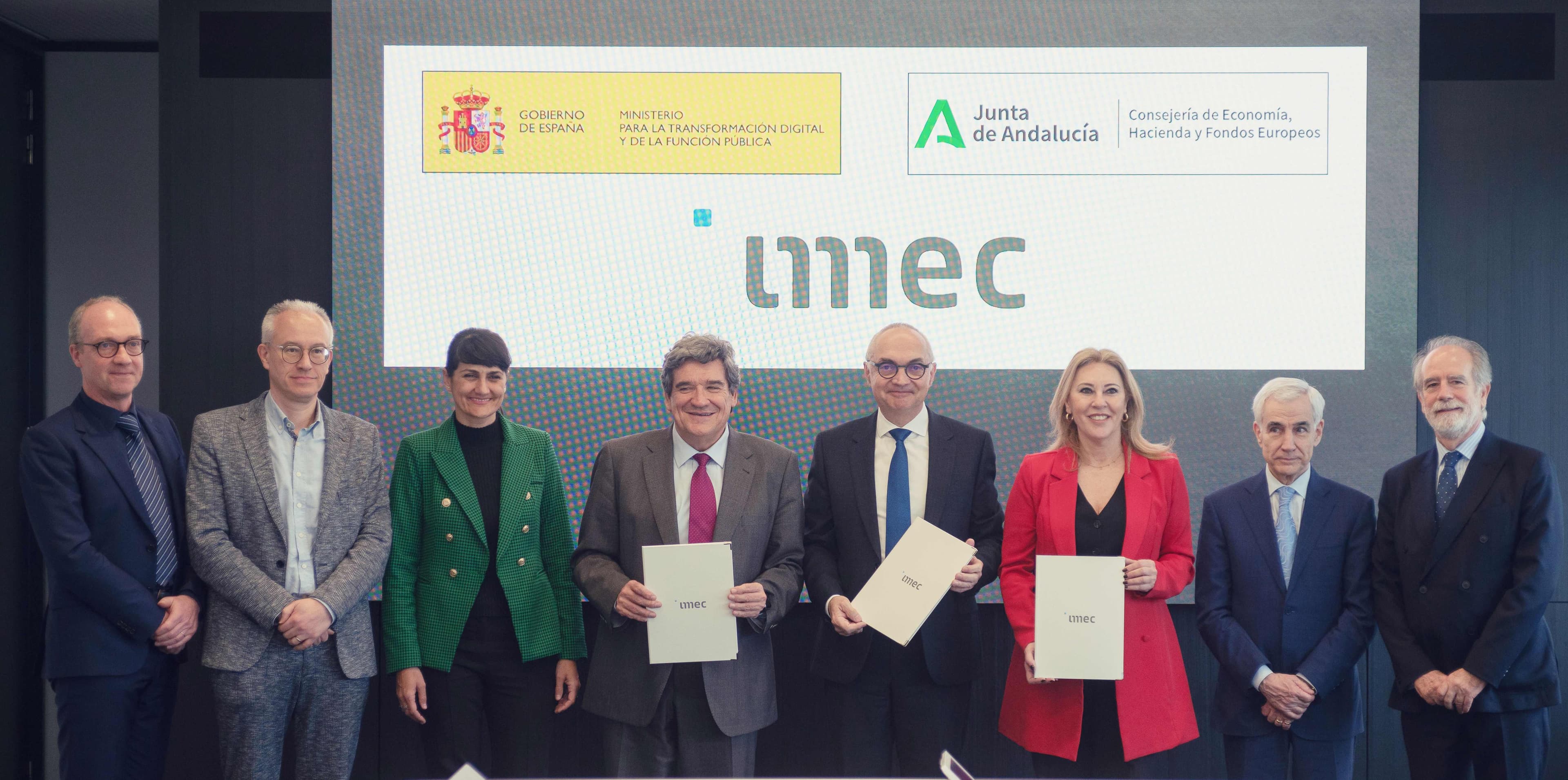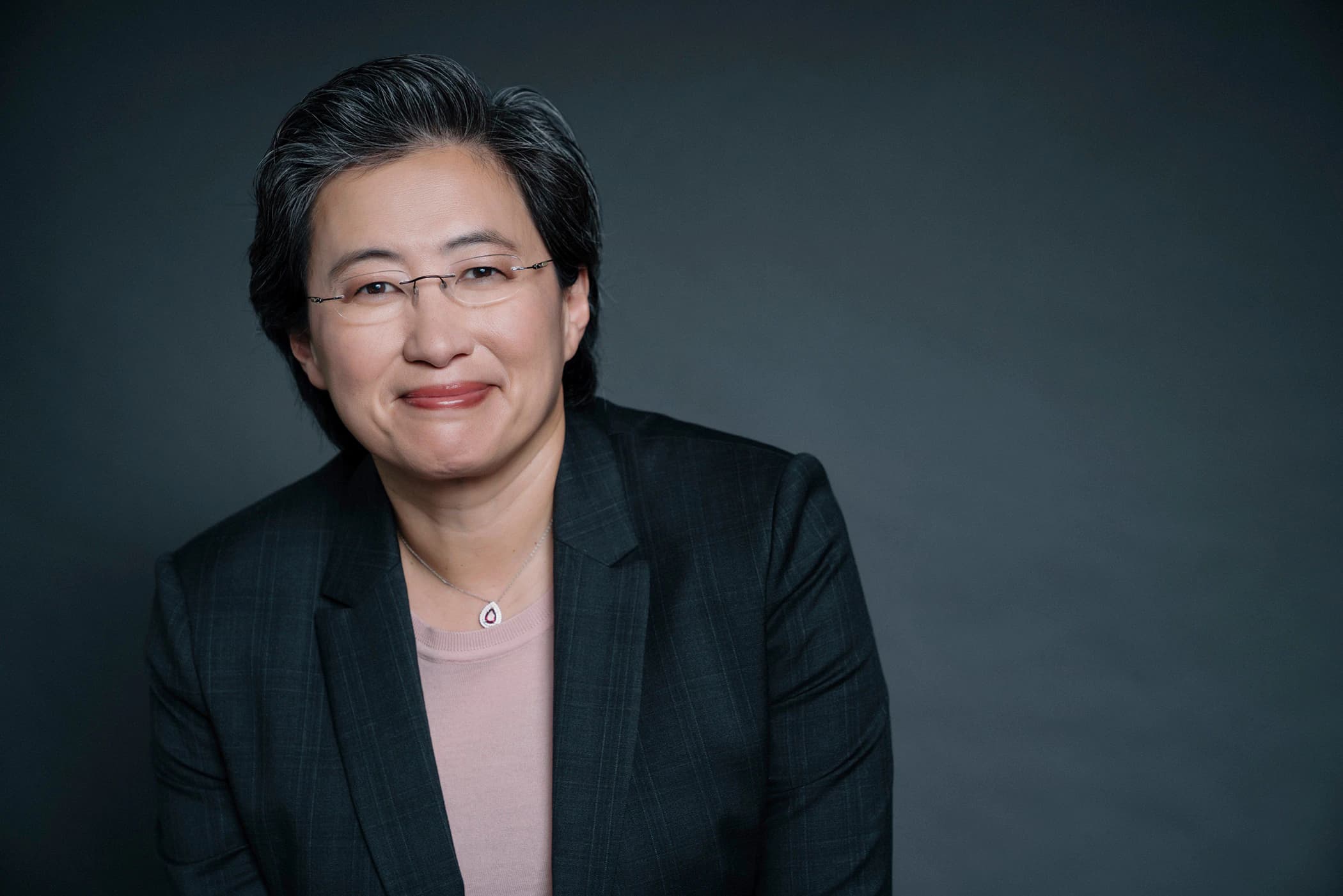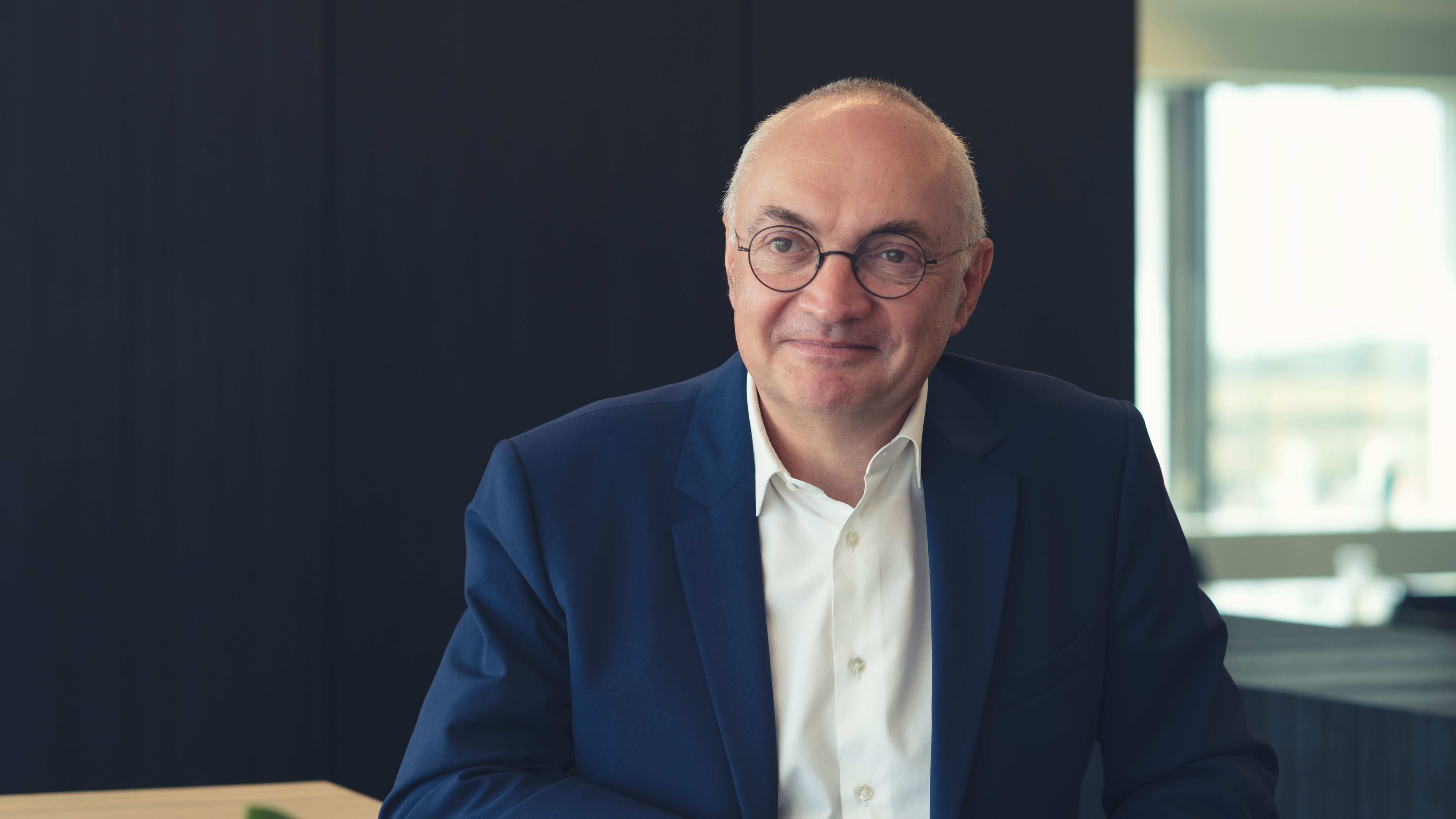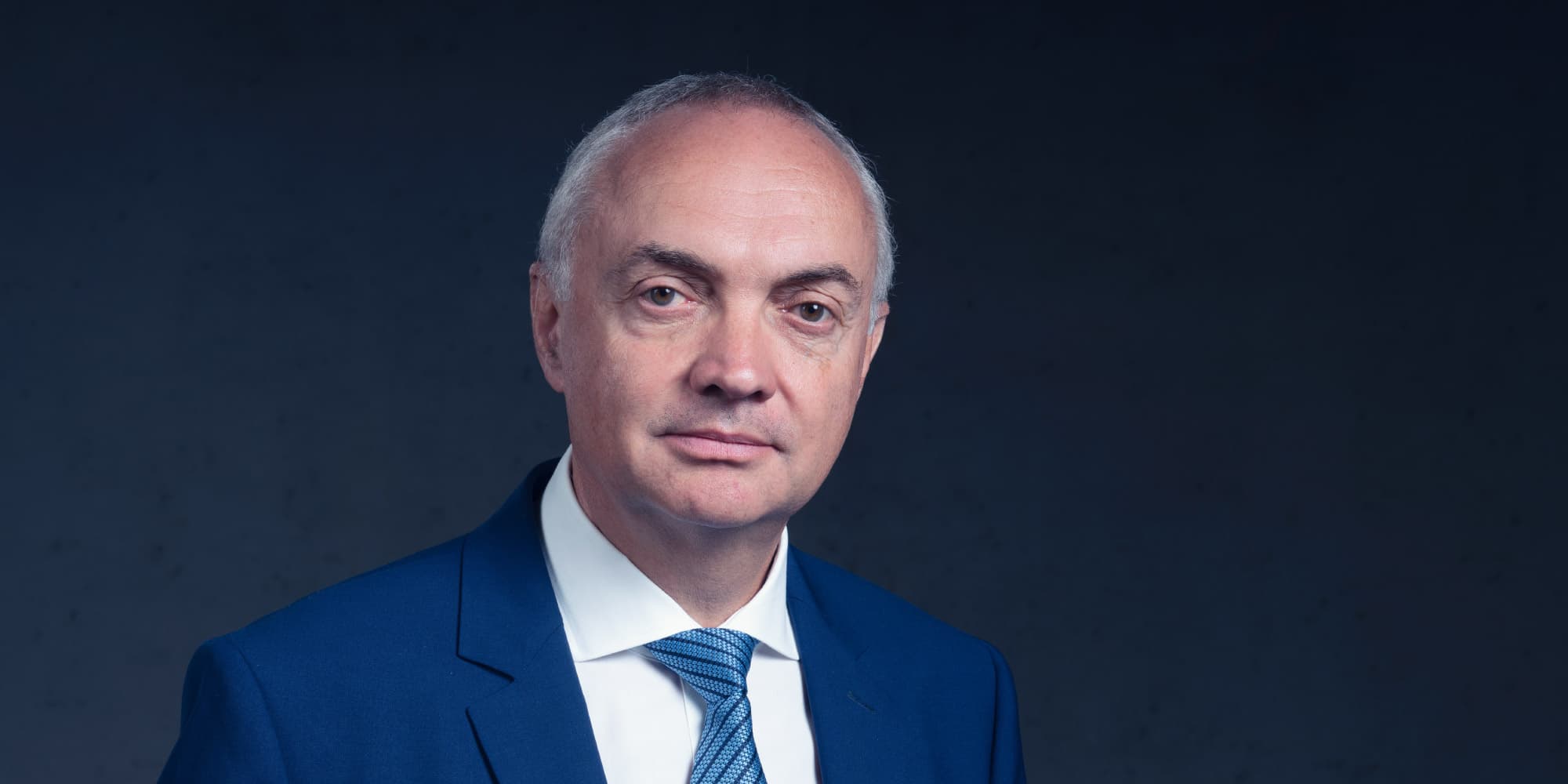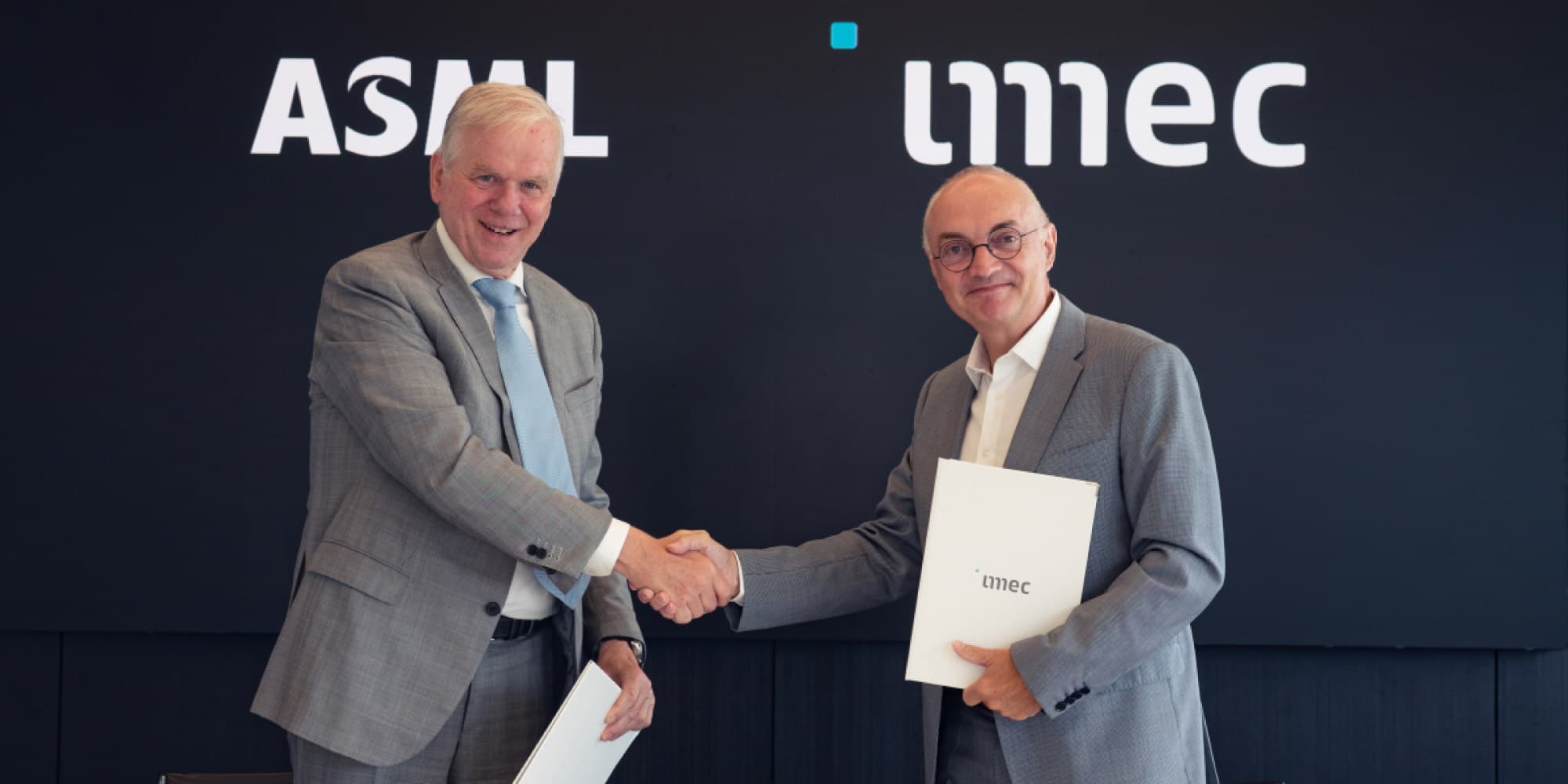ITF Belgium - making the impossible possible
On May 23 and 24, imec welcomed 1,800 participants from all over the world for its yearly ITF Belgium conference. Under the theme ‘New Perspectives – Make the Impossible Possible’, imec invited the conference participants to explore tomorrow’s life-improving technologies. ITF Belgium featured conference speakers from industry and academia as well as 50 demo booths showcasing imec’s newest innovations.
At the event, imec presented its annual ‘Lifetime of Innovation Award’ to Dr. Irwin Jacobs, founding chairman and CEO emeritus of Qualcomm. Irwin Jacobs’ many technological contributions laid the groundwork for creating mobile communication as we know it today.
In 2019, we will expand ITF Belgium into three conferences: ITF Belgium 2019 (May 14) will explore the nano & digital technologies behind game-changing innovations; Forward Dive 2019 (May 15) will focus on the impact of technology on society, with a special focus on AI; finally, AI Flanders 2019 (May 15) will focus on the use of AI technology in domains such as Smart Health and Industry 4.0.
Niels Verellen awarded ERC Starting Grant to develop ultra-small microscopes
Niels Verellen, one of imec’s young scientists, will use the ERC Starting Grant of 1.5 million euro to enable high-resolution, fast, robust, zero-maintenance, inexpensive, and ultra-compact microscopy technology. The new microscopy devices will induce a profound change in the way cell biologists do research, in the way DNA sequencing becomes more and more accessible, in the way certain diseases can be diagnosed, new drugs are screened in the pharma industry, and healthcare workers can diagnose patients in remote areas. The technology will be based on a novel imaging platform that integrates active on-chip photonics and CMOS image sensors.
The European Research Council (ERC) is a pan European funding body, aiming to support the best and most creative scientists to identify and explore new opportunities and directions in any field of research. Read the full press release here.
Imec and ASML intensify collaboration in the domain of EUV Lithography
Building on almost 30 years of joint research, imec and ASML announced on October 22nd that they will intensify their collaboration. The aim is twofold: to advance high-volume production with current EUV lithography, and to develop future EUV systems.
A first concrete outcome of the intensified collaboration is the installation of ASML’s most advanced and high-volume production dedicated EUV scanner (NXE:3400B) in imec’s cleanroom. Combining ASML’s lithography and metrology equipment with imec’s infrastructure and advanced technology platforms, imec and ASML researchers – as well as partner companies – can thus pro-actively analyze and solve technical challenges (such as defects, reliability and yield) and accelerate EUV technology’s industrialization.
A second component is the foundation of a joint high-NA EUV research lab, where researchers from both organizations will experiment with the next generation of EUV lithography at higher Numerical Aperture (NA). Systems with a higher NA project the EUV light onto the wafer under larger angles, improving resolution, and enabling printing of smaller features. More specifically, the new high-NA EUV system that will be installed in the joint research lab will have an NA of 0.55 instead of 0.33 in current EUV systems. Read the press release here.
Imec strengthens start-ups and scale-ups
During the World Incubation Summit in Toronto (Canada) on February 22, UBI Global unveiled its ranking of university-linked incubators and accelerators. 1,370 programs worldwide were screened according to over 50 parameters. Imec.istart, imec’s business accelerator program, was awarded the fourth place in the category ‘World Top Business Accelerator – Linked to University’. That makes it the best-placed European accelerator. Want to know more? Read the press release here.
The imec.istart start-ups have become more and more successful in securing additional funding. Today, the total for all imec.istart companies exceeds 100 million euro. Almost 70% of that amount was raised in the last two-and-a-half years.
US and Asian scale-ups often struggle to enter the European market because they do not have access to a local network, lack market knowledge, or are unfamiliar with EU business culture and legal requirements. To respond to these needs, imec presents imec.scale-ups, an intensive 8-week program that helps foreign scale-ups find their way in the European ecosystem. By entering the program, the scale-ups also benefit from imec’s wide network of potential partners, investors, and clients. Imec.scale-ups has been set up in close collaboration with Scale-Ups.eu and with the support of Flanders Investment & Trade (FIT). More information on the website and in the press release.
Imec.xpand raises 117 million euro to invest in innovative, early-stage ideas
Imec.xpand, an independent early-stage and growth fund initiated by imec, raised 117 million euro in committed capital. The fund targets ambitious tech start-ups for whom imec knowledge, expertise and infrastructure can play a determining role in their success.
Imec.xpand’s philosophy is to engage with companies at an early stage, so they can focus on developing a technology and on building a business, rather than spending all their time and energy on securing the next round of financing. The amount raised exceeds the initial target of EUR 100 million and positions imec.xpand as a major player in the deep tech venture capital ecosystem. Read the press release here.
Imec and its employees support a host of good causes
In 2018, imec put corporate social responsibility high on its agenda – with imec’s employees organizing highly visible actions to support a number of good causes.
45 creative colleagues got together to knit over 900 Christmas ball ornaments, which were then sold in support of research into Alzheimer’s disease. Another group of imec colleagues organized a number of activities to support the ‘Run for Life’ initiative for cancer research. There was a forest run, dessert buffets, a family bike tour, and the sale of specialty beers.
Imec is also involved in Hope for Girls, a project that provides shelter and education to young Kenyan girls trying to escape female genital mutilation. Imec contributes to this project by providing financial and material support.
Imec employees have also raised financial support for the people in India that have been affected by devastating floods. Imec doubled the amount for the Kerala Relief Fund!
In total, imec and its employees donated 58.300 euro to good causes.
Belgian team secures million-dollar funding from Chan Zuckerberg initiative
In December 2018, the Neurodegeneration Challenge Network awarded a Belgian team a $1.05 million funding. The Neurodegeneration Challenge Network was launched by the Chan Zuckerberg Initiative (CZI), the philanthropic endeavor led by Facebook’s Mark Zuckerberg and his partner Priscilla Chan. It brings together experimental scientists from diverse biomedical research fields, as well as computational biologists and physicians, to understand the underlying causes of neurodegenerative disorders.
The Belgian team is led by Patrik Verstreken (VIB-KU Leuven), alongside clinical expert Wim Vandenberghe (UZ Leuven) and imec’s Dries Braeken. The team’s goal is to ‘print’ tiny portions of the human brain on a unique chip, giving researchers access to human brain tissue, from both patients and healthy individuals. This technology can be used to track disease progression, but also to screen for strategies to correct the problems. Read the full press release here.
Europractice services to European academia and industry secured until end 2021
Imec and its partners STFC-UKRI, Fraunhofer IIS, CMP and Tyndall received EU funding to secure the Europractice services to European universities, research institutes and industry until the end of 2021. In the new H2020-project named ‘Next Europractice eXtended Technologies and Services’ (NEXTS), new partners CMP and Tyndall complement and extend the existing Europractice offering.
Europractice was set up almost 30 years ago to support the European academic sector with design tools and IC prototyping. The new NEXTS project will integrate – and build upon – the well-established, widely-used and successful services offered by the project partners, extending the service to SMEs, encouraging new users from non-traditional sectors, adding new technologies to serve new markets, diversifying the service towards smart system integration and packaging, and support the training of future generations of engineers for the growing digital economy in Europe.
EnergyVille II becomes a unique lab for research on solar cells and batteries
In June 2018, the second EnergyVille building was opened. The new building will be entirely dedicated to the development of thin-film solar cells, intelligent PV modules and new batteries for local energy storage. Some hundred researchers, mainly from imec and Hasselt University, will move into the building.
Imec and CEA-Leti join forces on Artificial Intelligence and Quantum Computing
imec and the French research institute CEA-Leti announced that they have signed a memorandum of understanding (MoU) for a strategic partnership in the domains of artificial intelligence and quantum computing, two key strategic domains for the European economic sovereignty.
The joint efforts of imec and CEA-Leti underline Europe’s ambition to take a leading role in the development of these technologies. The research centers’ increased collaboration will focus on developing, testing and experimenting neuromorphic and quantum computing – and should result in the delivery of a digital hardware computing toolbox that can be used by European industry partners to innovate in a wide variety of application domains – from personalized healthcare and smart mobility to the new manufacturing industry and smart energy sectors. Read the full press release here.
Published on:
10 January 2019



